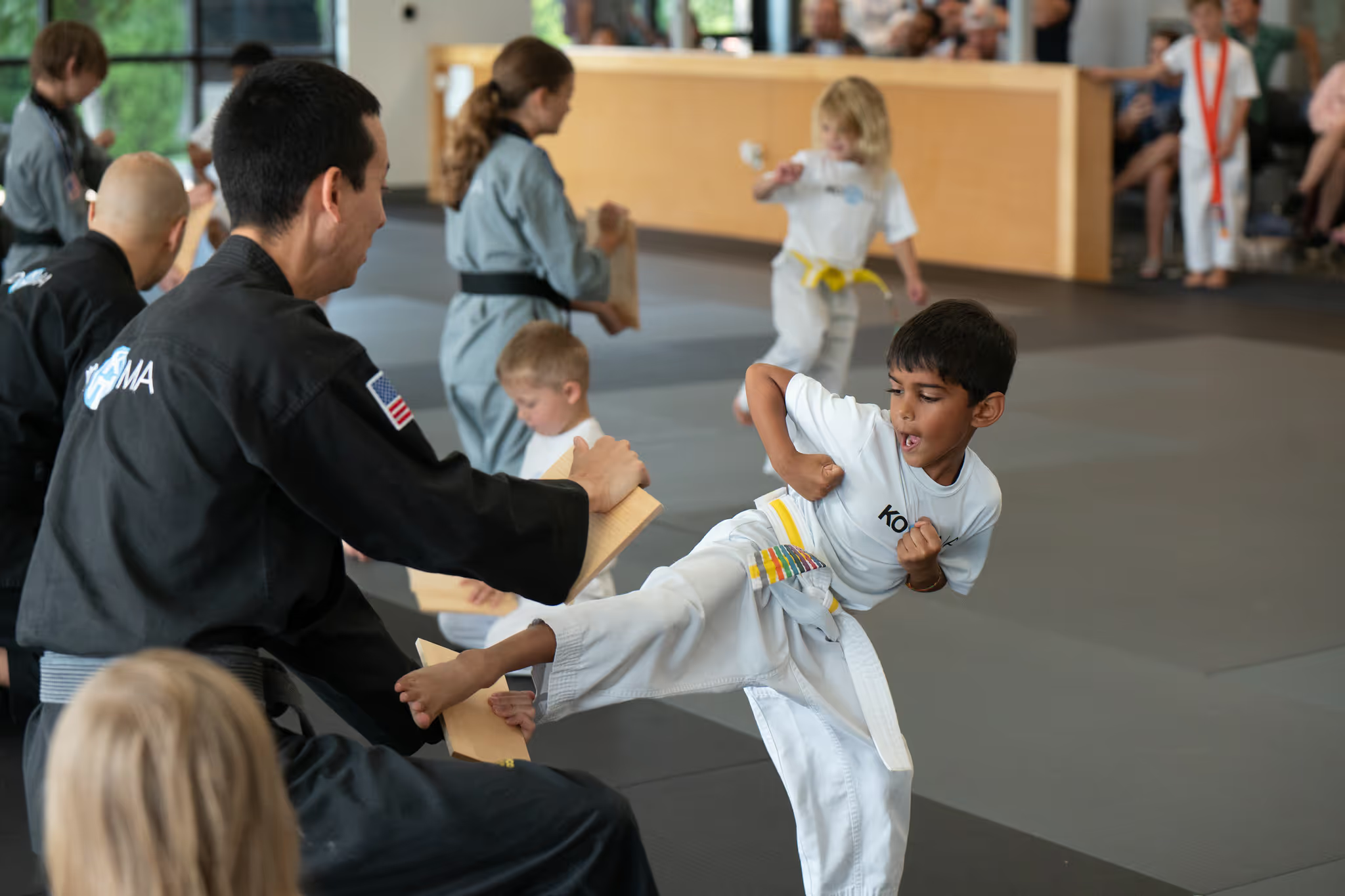
Parents often hope their children are naturally gifted. Whether in academics, sports, or the arts, we love seeing those early sparks of talent. But as much as talent can open a door, it is discipline that determines how far a child goes through it. At Ko Martial Arts, I have seen again and again that discipline, not talent, is the foundation of lasting success.
Why Talent Alone Is Not Enough
We have all seen a child who seems naturally skilled. They might pick up a movement faster, score higher without studying much, or shine early in a sport. But natural talent has limits. It creates a strong start, but without discipline, children often plateau. Talent might win the first game, but discipline wins the championship.
Discipline is the ability to keep showing up, even when progress feels slow. It is the habit of doing the right thing, even when it is not easy. Talent may give a head start, but discipline builds endurance. Over time, it is discipline that separates those who stay average from those who grow into leaders.
How Martial Arts Teaches Discipline
In martial arts, every class is designed to strengthen discipline. Children practice the same skills again and again, sometimes hundreds of times. At first, they might not understand why. But over time, they see that repetition builds strength, focus, and confidence. They learn that mastery is not about shortcuts but about steady effort.
We also teach discipline through structure. Children bow before stepping onto the mat, line up in order, and listen for instruction. These routines train them to respect authority, follow directions, and pay attention to detail. The structure of martial arts builds the foundation for disciplined living.
Another way discipline is taught is through goal-setting. Belts are not given; they are earned. Each belt represents hours of effort, perseverance, and learning. When children achieve a new belt, they know it is not because of talent but because of their discipline and commitment. That lesson stays with them long after they leave the mat.
The Connection Between Effort and Excellence
When children learn that effort is more important than talent, they begin to approach challenges differently. Instead of saying, “I can’t do this,” they start saying, “I can’t do this yet.” That small shift in mindset builds resilience.
Discipline teaches children to value progress, not perfection. Every mistake becomes an opportunity to learn. Every challenge becomes a chance to grow stronger. Over time, this creates a belief that excellence is possible — not because of natural ability but because of consistent effort.
Why Parents Value Discipline Over Talent
Parents often come to me saying their child struggles with consistency. They start things but do not finish. They give up when something gets hard. That is where martial arts makes the difference.
When children train with us, they learn that showing up matters. They experience how effort pays off. They realize that the habits they build today will shape the person they become tomorrow. For parents, this is one of the greatest gifts martial arts can provide.
Discipline also extends beyond the mat. Children who develop discipline in martial arts bring it into schoolwork, chores, friendships, and future goals. They learn to finish what they start, stay calm under pressure, and keep moving forward even when life is difficult.
Stories of Discipline in Action
I remember one student who struggled in the beginning. He wanted to rely on talent alone and became frustrated when moves did not come easily. But over time, he started to commit to practice. Slowly, his consistency paid off. Not only did his martial arts improve, but his teachers noticed a change at school. His grades went up, his focus sharpened, and his confidence grew. That transformation did not come from talent but from the discipline he developed through training.
Another student was naturally gifted. She rose quickly in the early stages, but when the training grew harder, she faced setbacks. At first, she wanted to quit. But with encouragement, she pushed forward. She learned that talent could only take her so far. It was discipline that helped her keep going, even when the path was not easy. Today, she is one of our strongest leaders.
Helping Your Child Build Discipline
As a parent, you may wonder how to teach discipline at home. The truth is, discipline is not built overnight. It grows in small, consistent steps. Here are a few principles I recommend:
- Set clear expectations. Children thrive when they know what is expected. Whether it is finishing homework, cleaning up, or practicing a skill, consistency matters.
- Encourage effort, not just results. Praise your child for working hard, not just for winning or achieving. This teaches them that effort is what leads to success.
- Model discipline yourself. Children watch what we do more than what we say. When they see you staying consistent, they learn to value discipline.
- Provide supportive challenges. Growth happens when children are stretched. Give them tasks that push them a little beyond their comfort zone.
- Celebrate persistence. Recognize when your child sticks with something, even if it is hard. This reinforces the value of discipline.
The Lasting Value of Discipline
Discipline is not about strict rules or punishment. It is about teaching children how to guide themselves, even when no one is watching. Talent may open doors, but discipline is what walks them through and keeps them moving forward.
At Ko Martial Arts, we believe every child has the potential for excellence. Talent may vary, but discipline can be built in every child. And once it is, it becomes a lifelong skill that shapes their future.





